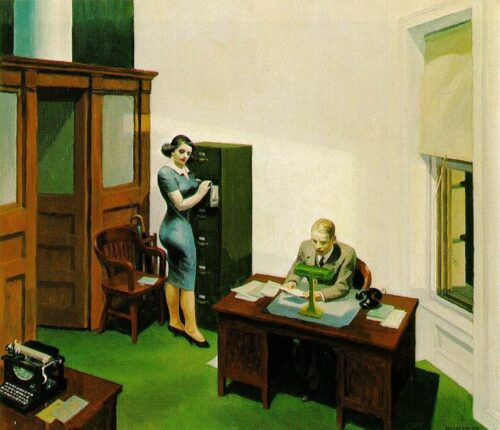A new Atticus study has found that mental health issues are now the most common workplace injury.
And burnout, provoked by stress and anxiety, is the main culprit.
Forbes has a great rundown of the results of the study, so I suggest reading Dr. Bryan Robinson’s report.
But I also want to address what I can only guess is Protestant Work Ethic skepticism towards this finding.
Loads of Protestant Work Ethic Christians are probably sneering at the study, claiming this is just a case of “laziness” (or perhaps they’d prefer the term “sloth”).
“Work is stressful. That’s life,” they’d say. That sort of thing.
“This new generation expects a bed of roses.” Etc.,
Well, the study absolutely refutes that.
The leading cause of burnout is not “sloth” or “laziness,” but perfectionism, according to the study.
In other words, Americans are too hard on themselves!
They feel such intrinsic pressure to succeed that it’s driving them to burnout and failure.
The problem, then, isn’t a culture of “sloth.”
Instead, it’s the United States’ age-old sin, workaholism and greed, which has produced countless economic marvels and countless broken homes, broken children, and a nation which seems to be breaking apart, as well.
There’s an old joke, and I’m not sure who to credit, but it goes something like this.
Russian novels: Is there meaning to existence?
French novels: Is there meaning to love?
American novels: Is there meaning to work?
German novels: No.
It’s funny. And sad.
The United States is a country obsessed with work, even when we pretend not to be. We are one that measures moral worth by net worth, even though it’s fashionable to pretend we’ve gotten beyond that.
And unfortunately, this culture is even more prevalent in the American church, and particularly evangelical circles, where the well-heeled quote Proverbs to defend the accumulation of wealth, at all costs, even as they ignore Jesus’ continual warnings about the dangers of wealth.
The church, in fact, is particularly beset by this toxic view of work, and it’s almost become a point of pride.
“We work, they don’t.”
And it’s enormously sad, because workaholism is as damaging to the moral fabric of a family and nation as just about any other -ism, and yet how many sermons do we hear about workaholism?
Burnout is just a very real thing. It’s not a product of 21st century millennial “laziness.”
It’s a product of a centuries’ old phenomenon that’s merely worsened — the idolization of wealth and success.
And, sadly, it’s destroying our personal mental health and our nation’s collective mental health.
The church often wonders why so many are leaving its pews.
Perhaps because the perfectionism that’s endemic in society is just as toxic at church, and the hypocrisy of the religion of success replacing a religion that’s built on self-denial is too much for many to bear.
If you feel like you’re suffering from signs of burnout, read more about its symptoms here.
And as always…
Find a psychiatrist here.
Find a therapist here.
[Painting: Office at Night, Hopper]

